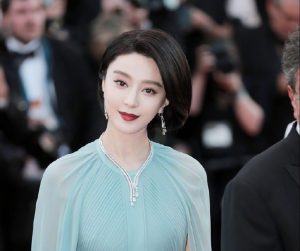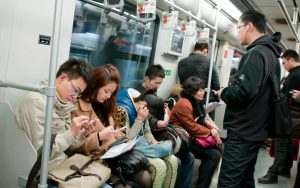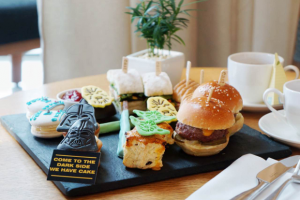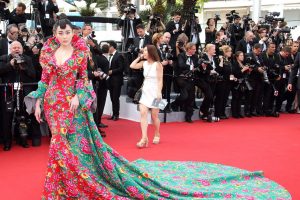Sharon Stone and Richard Gere are just two celebrities that have harmed their opportunities in China, or those of brands associated with them.

Image via VCG
Since Jing Daily first reported that Chinese supermodel Ming Xi, who has frequently collaborated with international luxury labels including Givenchy and Michael Kors, pulled out of a runway show at the amfAR Gala over an auction lot offering a meeting with the Dalai Lama, our readers have responded on various social media channels. One commenter seemed to sum up many of the sentiments when he wrote on our Facebook page, “Nothing unexpected here.”
Indeed, many Chinese celebrities, when attending overseas events, have become increasingly politically sensitive about certain issues including China’s position vis-a-vis Tibet (and the Dalai Lama), Japan, and Taiwan.
The same seems to go for luxury and fashion brands that operate in the Chinese market. Lancôme, Hermès and the Italian luxury carmaker Fiat have all learned the hard way that “political correctness” is an absolute must if you’re doing business in China.
Even when issues arise that have little to do with the brands themselves, they still have to bear the brunt of the negative outcome not only from the Chinese government but from consumers as well.
Following are five times when the political positions of celebrities have had repercussions on the luxury and fashion brands they represent in China. Hopefully, brands can learn—what not to do—from their example.
1. Denise Ho and Lancôme
In mid-2016, the French cosmetics brand Lancôme was involved in a public relations (PR) battle after Denise Ho, a Hong Kong singer who had publicly expressed anti-China remarks online, performed at a mini-concert hosted by the brand. The case even caught the attention of Global Times, the state-run newspaper, who wrote a critique of the collaboration. Meanwhile, Chinese consumers residing in the company’s home country, France, launched an online petition calling for a boycott of the brand. Even though Lancôme immediately canceled Ho’s attendance and released a public apology to Chinese consumers, the brand lost many loyal customers for the issue.
2. Jane Birkin and Hermès
Created by the French luxury powerhouse Hermès in homage to British actress Jane Birkin, the classic Birkin bag was dragged into an unexpected spat last year when Birkin’s personal involvement with Tibet and the human rights movements crossed a line. The actress was banned from entering mainland China in 2016 to participate in a concert in Shanghai. Commenting on the issue, Global Times mentioned in an article that the actress participated in a protest against China in 2008 while carrying her namesake signature bag. To a certain extent, this put the spotlight on Hermès.
3. Sharon Stone and Christian Dior
In 2008, Hollywood star Sharon Stone, who was at the time the face of Christian Dior’s beauty products, put the brand in a tailspin when she made a public statement that the 2008 earthquake in China’s Sichuan province on May 12 (which killed nearly 70,000 people) was the result of “karma” from Beijing’s Tibetan policy. Chinese consumers were so furious over the statement that they boycotted her and Dior. In the end, the brand issued an official apology and dropped the collaboration with the actress.
4. Richard Gere and Fiat
In 2008, the Italian luxury carmaker Fiat was attacked by Chinese consumers for featuring the Hollywood star Richard Gere in its commercial ad campaigns. Gere is a long-time friend of the Dalai Lama, and a vocal supporter of the independence of Tibet. The brand dropped Gere and apologized for its choice.
5. Vivian Hsu and Chando
The collaboration between Taiwanese actress Vivian Hsu and the local Chinese premium beauty brand Chando also ceased when Hsu’s inappropriate remarks on the Sino-Japanese relationship caught the public’s attention. At the 2010 Tokyo International Film Festival, which Hsu attended on behalf of Taiwan, when the Chinese delegation at the festival requested the host country add “China” before “Taiwan” instead of listing Taiwan as a separate country, Hsu, who also was active as a celebrity in Japan in the 1990s replied, “Japan is like my stepmother…. I would never set foot in mainland China.”
— This article originally appeared on Jing Daily.





